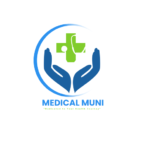
The gut brain connection is stronger than you might think! This “gut-brain axis” influences not only how our stomachs feel but also our mood, energy levels, and mental clarity. Let’s dive into how the food we eat impacts both our gut health and mental wellness—and how you can make simple, beneficial changes.
1. What is the Gut-Brain Axis?
Our gut and brain are constantly communicating with each other. This is done through a special pathway, mainly involving the vagus nerve and neurotransmitters (like serotonin) that impact our mood. When our gut is healthy, this connection stays strong, but poor gut health can disrupt it, potentially leading to anxiety, stress, and even mood swings.
2. How Gut Health Affects Our Mental State
A happy gut can lead to a happier mind! Here’s how it works:
- Serotonin Production: About 90% of serotonin, a “feel-good” hormone, is made in our gut. When gut health is off-balance, serotonin production may drop.
- Inflammation: A disrupted gut can cause inflammation, which may travel to the brain and affect mood.
- Stress Response: Chronic stress harms the gut, which in turn can increase feelings of anxiety.
3. Foods That Boost Gut and Mental Health
The right foods can make a big difference! Here are some gut-friendly, mood-boosting options:
- Probiotics: Foods like yogurt, kefir, and sauerkraut add good bacteria to your gut, improving balance.
- Prebiotics: Bananas, oats, and garlic help feed good bacteria.
- Fiber-Rich Foods: Fruits, veggies, and whole grains aid digestion and keep your gut in check.
- Anti-Inflammatory Foods: Omega-3s (like salmon and walnuts) reduce inflammation and support brain health.
4. The Impact of Diet on Mood and Focus
Eating well doesn’t just help your body—it boosts your mind too! Here’s how diet influences mental clarity:
- Blood Sugar Control: Balanced meals prevent sugar spikes and crashes that can lead to mood swings.
- Nutrients for the Brain: Vitamins (like B vitamins, magnesium) found in leafy greens, whole grains, and seeds support brain function.
- Reduce Inflammatory Foods: Processed foods can cause inflammation, affecting both gut health and mood.
5. Simple Tips for a Gut-Healthy, Mood-Boosting Diet
Try these easy steps to nurture your gut and keep your mind in top shape:
- Add Probiotics Daily: A serving of yogurt or a spoonful of kimchi can go a long way!
- Increase Fiber Slowly: Fiber-rich foods are great, but increase gradually to avoid digestive discomfort.
- Limit Sugary Snacks: Swap candy for fruits or nuts to avoid sugar spikes.
- Stay Hydrated: Water helps keep everything moving smoothly.
- Manage Stress: Activities like yoga, meditation, or even a short walk can ease stress for both body and mind.
Conclusion
Understanding the gut-brain connection can lead to a healthier, happier life. By focusing on a diet that promotes gut health, you’re also supporting your mental well-being. Small changes can have a big impact, so start with one or two tips and build from there!
**Frequently Asked Questions (FAQ)**
1. What is the gut-brain axis, and why is it important?
The gut-brain axis is the communication network between the gut and the brain, involving the vagus nerve and neurotransmitters. This connection influences not only digestion but also our mood, stress response, and mental clarity. A healthy gut supports better mental health, while poor gut health can contribute to issues like anxiety and mood swings.
2. How can I tell if my gut health is affecting my mental health?
Signs that gut health may be impacting mental health include frequent digestive issues (like bloating or constipation), mood swings, fatigue, and feeling unusually anxious or stressed. Often, these symptoms improve when gut health is addressed through a balanced diet and lifestyle changes.
3. Are probiotics really effective for mental health?
Yes, research suggests that probiotics can help improve gut health by increasing beneficial bacteria, which may positively influence mood and reduce stress. Probiotic-rich foods like yogurt, kefir, and kimchi support this process, but consistency is key for best results.
4. Which foods should I avoid for better gut and mental health?
Processed foods, sugary snacks, and items high in refined carbs can contribute to gut inflammation and disrupt the balance of gut bacteria. Reducing or avoiding these foods may help improve both gut and mental health.
5. How quickly can I see mental health benefits from improving my diet?
It varies from person to person, but some people notice improvements in mood, energy, and digestion within a few weeks. Small, consistent changes—such as adding fiber-rich foods, probiotics, and staying hydrated—often lead to lasting benefits over time.
6. Can managing stress really improve gut health?
Yes! Stress negatively affects the gut by disrupting the balance of gut bacteria and increasing inflammation. Managing stress through exercise, mindfulness, or hobbies can support both gut and mental well-being.
